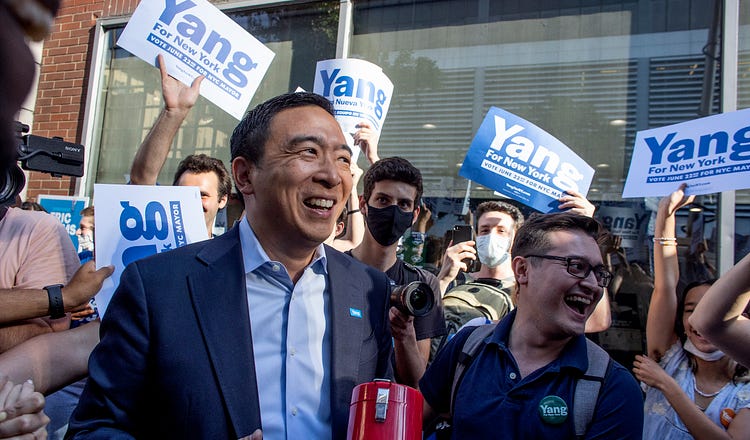Andrew Yang on How to Avoid 'Civil War 2.0'

Andrew Yang on the mayoral campaign trail on New York City on June 10, 2021.(Andrew Lichtenstein/Corbis via Getty Images)
The case for ranked-choice voting, open primaries, and third parties. Plus: Dave Chappelle, cryptocurrency, Critical Race Theory, the metaverse, Elon Musk, and more.
121
Andrew Yang is the most upbeat politician I have ever met. I am also fairly convinced he is a masochist.
First, he decided to run for president of the United States. He lost. Then he decided to run to become mayor of New York City. He lost again. A normal person might consider a career shift.
Not Yang. In October he announced that he was leaving the Demo…
Continue Reading The Free Press
To support our journalism, and unlock all of our investigative stories and provocative commentary about the world as it actually is, subscribe below.
$8.33/month
Billed as $100 yearly
$10/month
Billed as $10 monthly
Already have an account?
Sign In

